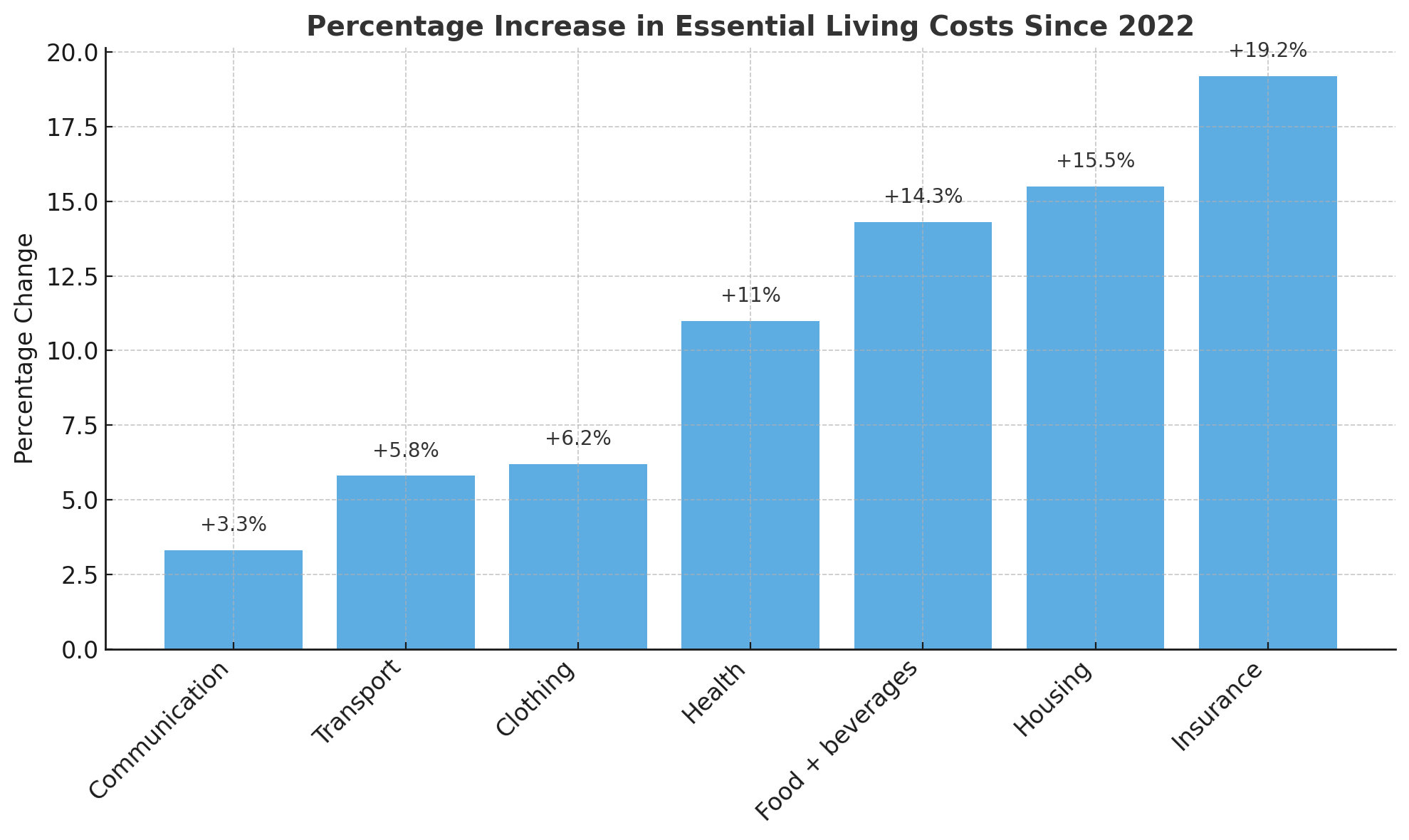

“It felt like I was actually paying to work,” said Jean, a media practice graduate from the University of Sydney, describing her unpaid six-month internship at Fantuan Delivery.
Balancing study, work, and Sydney’s high costs, she struggled to afford daily expenses, not for pay, but for a chance at future employment.
Across Australia, many students face the same challenge: unpaid placements, once seen as gateways to future careers, have become exhausting burdens amid rising living costs. For some, the promise of opportunity feels out of reach, and survival takes priority. What was meant to open doors now often acts as a barrier to the future they deserve.
A Broken System
In 2024, Jobs and Skills Australia reported that over half of employers prefer candidates with relevant experience. For students in fields like journalism, education, and social work, mandatory placements are often part of their degrees. For example, at the University of Sydney, nursing students must complete clinical placements.
Under Section 12 of the Fair Work Act, such placements are legally unpaid and classified as “vocational placements.”
Interning for Free While Living Isn’t

According to the Australian Bureau of Statistics, the cost of essential living expenses has risen significantly since 2022, with increases seen in healthcare, food, housing, and insurance. Many students are juggling full-time study with part-time jobs, often at the expense of their academic performance and mental health.
Jean mentioned that although she received financial support from her family, it was far from enough to maintain a decent standard of living. For her, the unpaid internship was not a career opportunity—it was a barrier.
“I worked evenings and weekends to afford the internship,” Jean said. “It was exhausting. I felt that I wasn’t learning, I was just surviving.”
As more students struggle to make ends meet during unpaid placements, some have turned to social media to share survival tips.
On TikTok, users like @darcyypara, a nursing and paramedicine student, offer advice in videos such as “How to Survive 8 Weeks of Unpaid Placement,” highlighting a growing online community facing similar financial pressure.
@darcyypara Some things I do to help myself survive financially during placement #survivingplacement #financiallyunprepared #moneysavingtips #placementedition #nursingandparamedicinestudent #nursingplacementtips #nursingplacementsaustralia
Local students are not the only ones who face this dilemma.
Jonathan, a Chinese international student studying civil engineering at the University of Sydney, completed an unpaid internship at Beijing Urban Construction Group.
To minimise costs in high-expense Beijing, he stayed in free on-site dormitories and relied on meals provided by the construction company.
He also gave up other internship opportunities that could have provided financial compensation.
“I did give up a paid job opportunity because of the internship, as the university required us to find work related to engineering,” Jonathan said. “Since I have now fulfilled the university’s requirement, I am more inclined to pursue paid work moving forward.”
The Cost Isn’t Just Financial
Jonathan also pointed out that unpaid internships can significantly affect academic performance.
He mentioned that one of his classmates had been working part-time to support his studies and living expenses, but eventually had to delay graduation because the internship took up so much time that he was unable to complete his assignments on time.
These cases echo widely among students. According to a report by The Guardian, many students in Australia are feeling exhausted due to being required to complete hundreds of hours of mandatory unpaid placements as part of their degree programs. With the rising cost of living, some have been forced to abandon their studies altogether.
According to data from GUPSA, 98% of students reported being negatively affected by their placements, and 81% said their mental health had deteriorated as a result.
These personal experiences and data reports highlight a stark reality: unpaid internships not only cost money, but also take a toll on students’ well-being—a situation often referred to as “placement poverty.”
Wealth Opens Doors, Poverty Shuts Them
Unpaid internships not only consume students’ time and energy, increasing their cost of living indirectly, but in some cases, they also require students to spend their own money directly.
According to a report by News.com.au, some companies offering internship opportunities charge students between AUD 2,000 and 4,000 in placement-related fees just to secure a spot.
Ryan Shrestha, founder of Study and Work—a company that provides such paid placement services—mentioned that international students typically pay these fees.
He believes that universities’ overreliance on international student revenue drives demand for such services, while students often see little return on investment, with fewer than 20% working in their field of study.
This situation has led to a polarised university experience. Wealthier students secure more internships, while others struggle financially, miss placements, and risk not graduating, widening inequality.
Time for Reform
The Australian government will launch the Commonwealth Prac Payment in July 2025, offering weekly support to eligible students during mandatory placements.
However, according to an ABC report, some student groups have criticised the policy, arguing that the subsidy amount is “far from sufficient” and that a large number of students are not covered by it.
In response to these challenges, Australia could look to successful international models.
In Canada, the co-op placement program formally incorporates paid internships into university degree structures. Students not only gain practical experience but also receive financial compensation, with internship durations kept within reasonable limits to avoid negatively impacting academic progress.
Beyond this, the government and universities could implement broader reforms, including:
- Providing needs-based financial aid for students facing economic hardship;
- Expanding the Work-Integrated Learning (WIL) model with paid opportunities across more disciplines;
- Allowing alternative coursework or credit options, especially for mature-age and part-time students, to ensure greater flexibility and inclusion.
A More Equitable Path Forward
Placement internships aren’t inherently exploitative. With a fair structure and proper support, they can help students gain experience and build networks. But when universities and employers limit access to those with financial means, they turn internships into tools of exclusion rather than education. This structural inequality marginalises vulnerable students and contradicts the ideals of equal opportunity.
We must stop ignoring this issue. Universities, governments, and employers must ensure internships are fair, inclusive, and protective of students’ rights. Otherwise, “internship” will come to mean sacrifice, not growth.





Be the first to comment